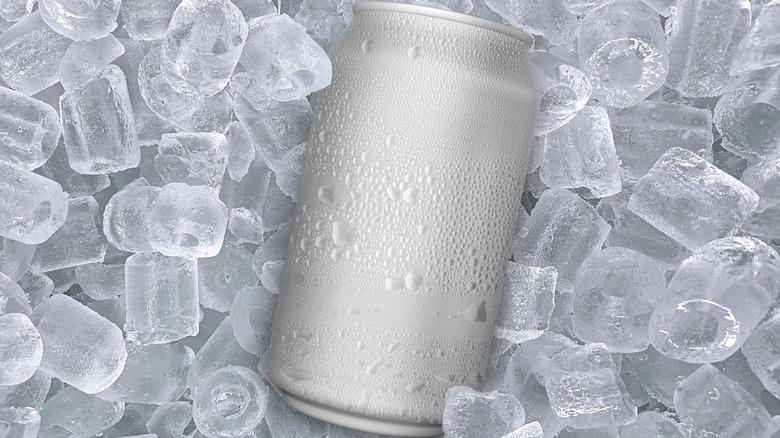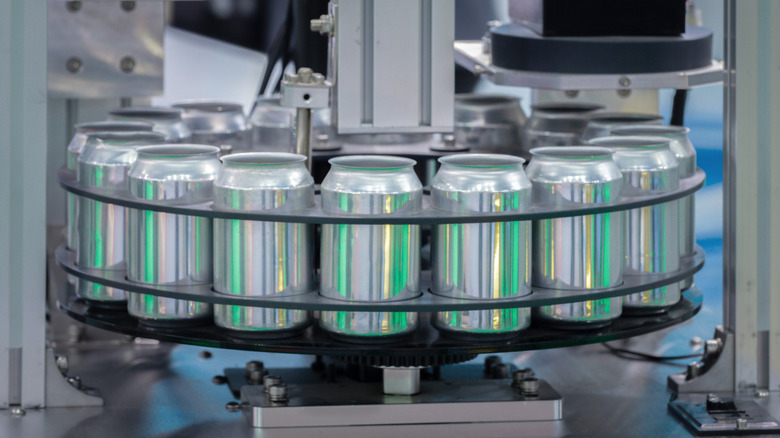How Buying Canned Water May Cause Your Carbon Footprint To Skyrocket
Environmentally-friendly packaging is sprouting up on everything from yogurt to condiments to chocolate bars. As the move toward sustainable materials in the food world has increased, water has become part of the change, with brands like Boxed Water is Better and Liquid Death (don't be fooled by the name — it's canned water) joining the fray. There's a good reason water companies are trying to innovate away from plastic bottles, as over 300 million tons of plastic are produced every year, and up to 90% of the trash on the shorelines comes from plastic, according to Seed Scientific. The idea is that water boxes and cans are easier to recycle than plastic, which Liquid Death states on its website, noting that "plastic will outweigh fish in the ocean by 2050."
It's a noble and necessary mission, but will making the switch to canned water effectively help the environment? It's true that staying away from plastic is a good move, considering one plastic bottle can take a thousand years to break down, and they usually aren't recycled properly. But it's a good idea to do your research before buying canned water exclusively, as it may actually increase your carbon footprint.
Making aluminum releases a lot of carbon
Using aluminum may have a plethora of environmental benefits. It's much sturdier than plastic, meaning it's easy to reuse over and over again before it wears out — in fact, approximately 75% of aluminum ever made is still being used today, compared to 9% of plastic, according to The Verge. Recycling aluminum is also much more straightforward, as the material doesn't lose any quality during the process, and recycling aluminum saves over 90% of the energy needed to create new aluminum (via Eco Replenishers).
And yet, using aluminum to make canned water is not a perfect solution. According to Carbon Chain, making one tonne of aluminum releases 16 tonnes of carbon — this results in more carbon emitted than when burning five tonnes of oil, to put it in perspective. However, the carbon amount depends on the energy source producing the aluminum, as coal power emits about five times as much carbon as hydro power, Climate Action shares. Still, if you're buying tons of canned water or exclusively using cans to replace your plastic water bottles, you may actually be increasing your carbon footprint.
So is boxed water any better? While plant-based boxes may require fewer carbon emissions to make, the recycling process is much more difficult, so your box may end up in a landfill anyway. There currently isn't a perfect way to buy sustainably packaged water, but you can try to drink out of a reusable water bottle when possible.

